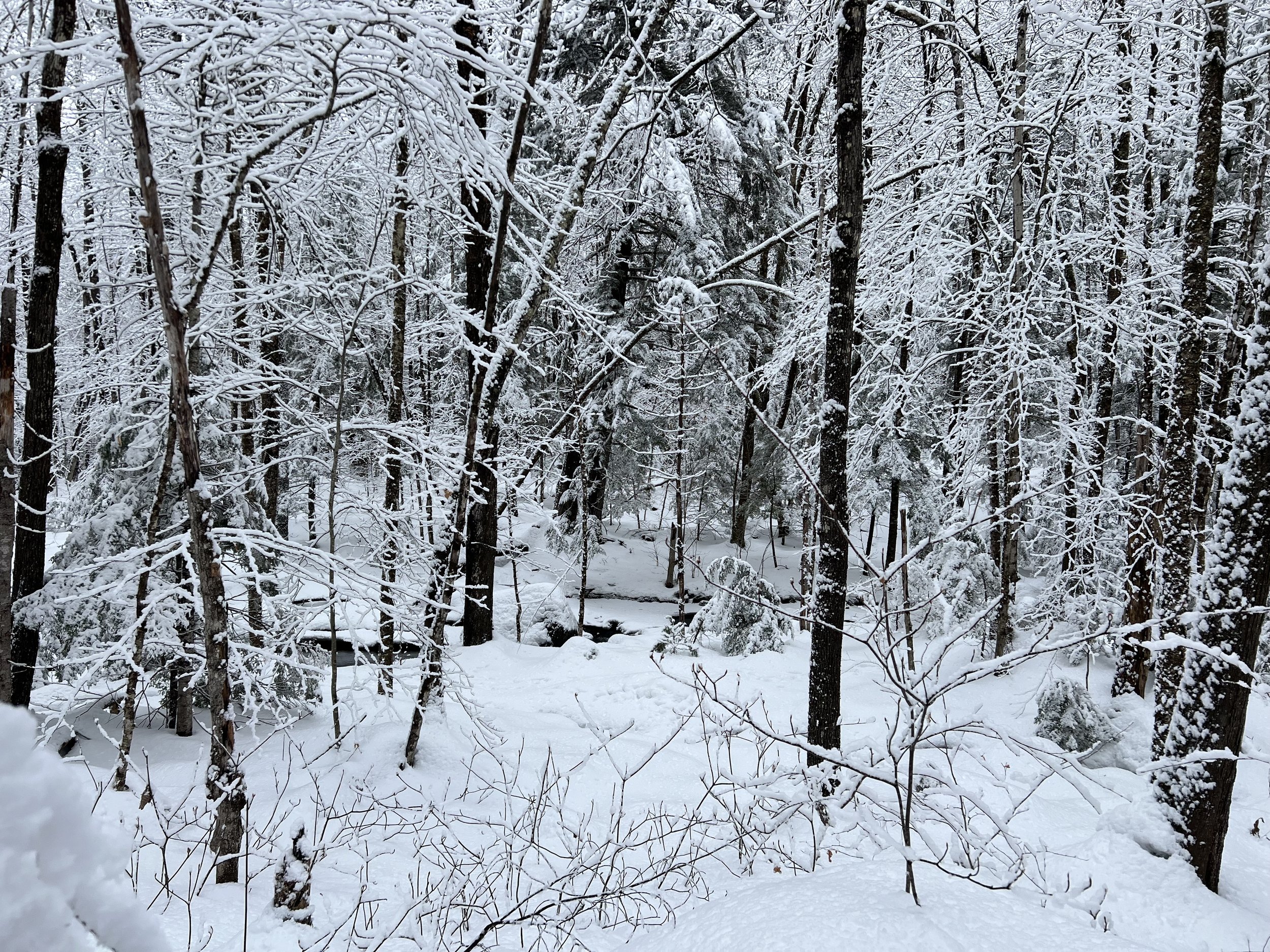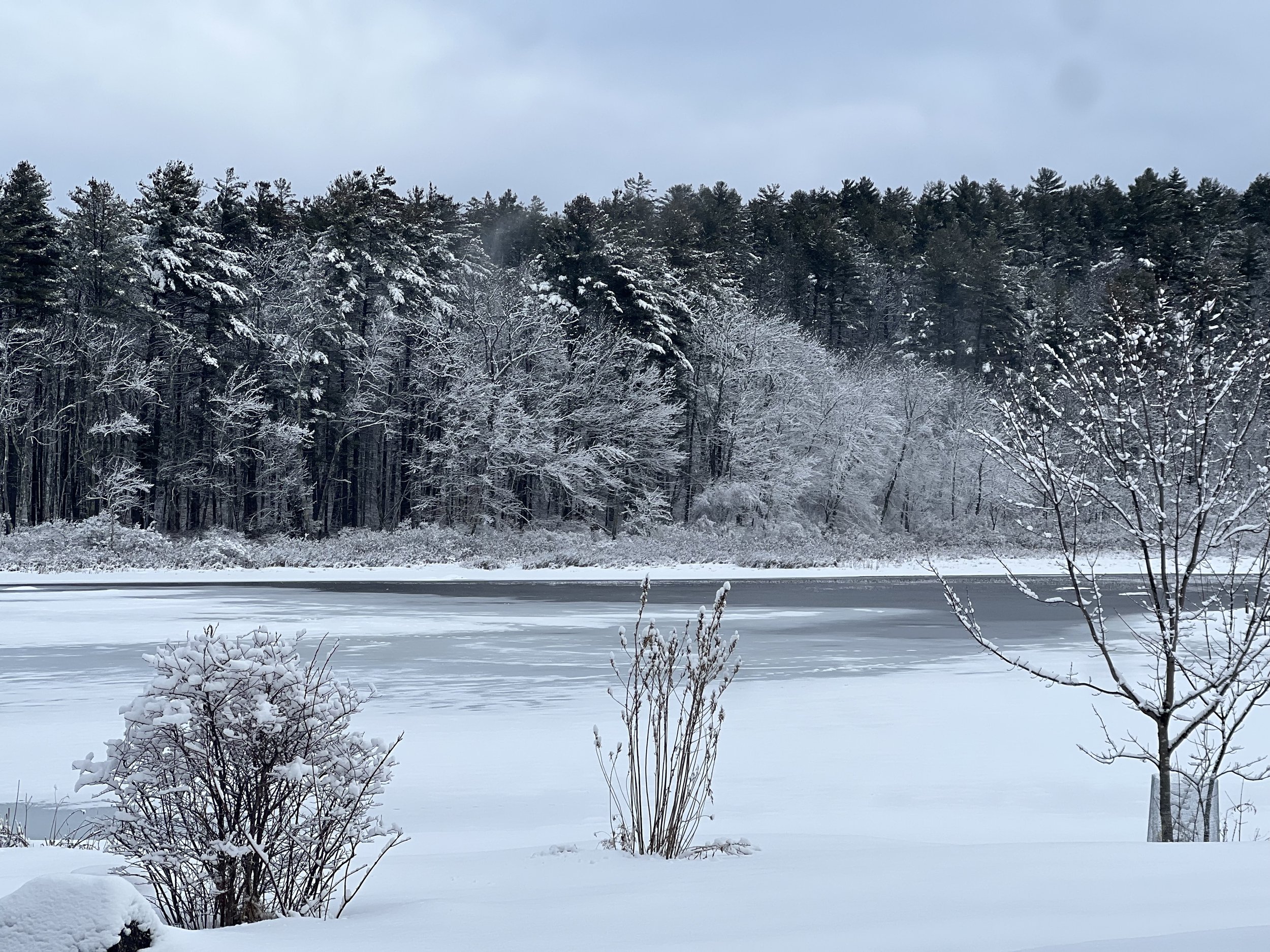I didn’t anticipate thinking of Siberia very often in New Hampshire, but it crossed my mind possibly every other day in my first few weeks here. I wondered if this scenery, a frigid expanse of forest and frozen water, at all resembles those iciest places humans have been able to settle. Maybe not quite. My mind is jumping to its archetypal ideas of cold places as it takes in winter landscapes unlike any I’ve witnessed before. After a winter storm, it looks like an overzealous divine baker has applied a generous layer of frosting over the world. With the snow falls a consuming stillness, full and thick, muting the world into a near silence. On the frozen lake, a distant outline of mountains is just discernible against a gray sky, fading into the horizon across a vast sheet of ice. While far north enough for me to amaze my subtropical students with photos of people knee-deep in white, my home state of Pennsylvania doesn’t get this kind of snow and ice – at least not anymore.
The last time I moved to a new environment, I was adjusting to humidity that I could practically touch and scenery marked by leafy banana palms protruding from wide-leaved taro plants and ferns. I lived and taught English in a rural, countryside town nestled in a valley between the two mountain ranges, the Central and the coastal, that span the island of Taiwan. Not yet developed enough for industry to be its main economic provider, Yuli consisted of rolling rice paddies and farmland against gentle mountain peaks, a sight that still occasionally appears in my dreams. ‘Toto, we’re not in Taiwan anymore,’ I thought as I drove into Holderness in early January. I greatly enjoyed my year in Yuli, and I wanted to try living in a small town back in the U.S. to see if I’d enjoy it as much. I liked bumping into familiar faces at the grocery store, chatting up the store owners at my regular eateries, being able to get everywhere by bike. Little did I know, my next position – Watershed Resource Assistant with the Lakes Region Conservation Corps – would be situated in just such a small town. One of my goals for this year is to get to know this place: who are the people who call this place home, how do they live and what do they value, and to see whether I can see myself living long-term in a place like this. It parallels another goal I have for this year, which is to test the waters (quite literally) of what it’s like to work in the field of conservation science and see whether this really is the area I want to dedicate my career to. I think at its core, they’re assessments of identity and belonging, which have been central themes of my life thus far. A town like this, this field – is there a place for me in it, even if I didn’t grow up camping or hiking, ate rice rather than sandwiches, and don’t look like most people in it?
Last Friday, my new housemates and I went on a hike to Mount Israel. It was our first group hike apart from official programming that we participated in during orientation. As I clambered up the snow-covered inclines, I recalled what SLA’s Assistant Director Katri said about the trails in New England feeling like they give you a hug as you make your way through them. I got what she meant that day. The mostly leafless trees, laden with snow, made just enough space for me, brushing up against me with a friendly touch every so often. Near the summit, the limb-like, scraggly part of the forest transitioned into a denser section where shorter pines framed the trail. In their bushy winter coats, I thought that I had walked straight into the image on a cheery winter postcard. Our arduous trek culminated in the best reward: a sweeping panoramic of the snow-covered mountains, streaks of blue tearing through a marbled silver haze. There are many things I still don’t know, many uncertainties about the future. But in that moment, and moments like it, I feel only excitement for what’s to come. I have a feeling that this lake, these trees, and a shared desire to marvel at and protect them will lead to the discovery of commonalities that transcend the arbitrary boundaries between us, and show us the joy of nature’s beauty and the connections it creates along the way.
Tara is serving at the Squam Lakes Association as a Watershed Resources Assistant. Tara’s culinary tip, add a little salt to your sweets! Learn more about Tara here!






